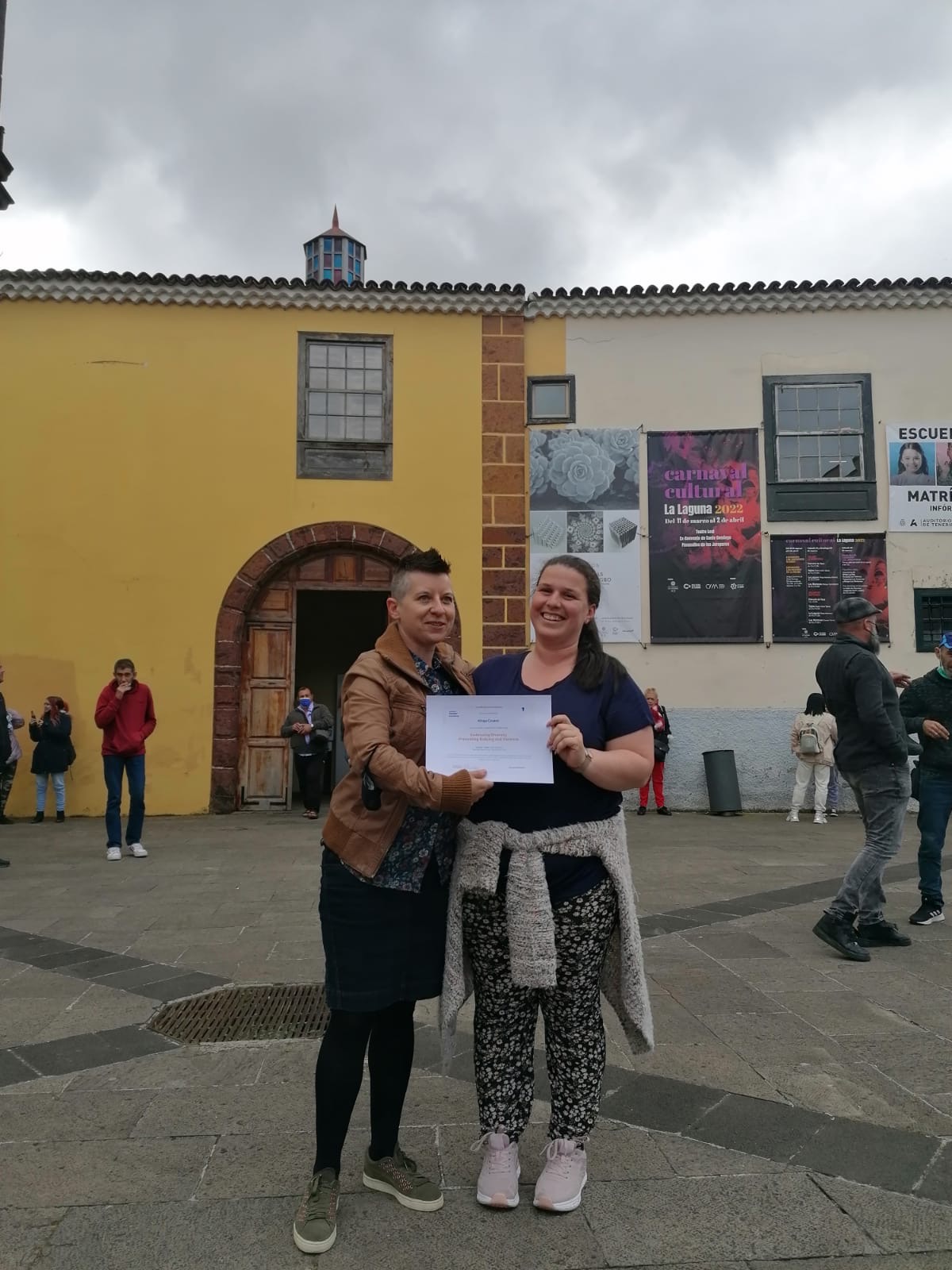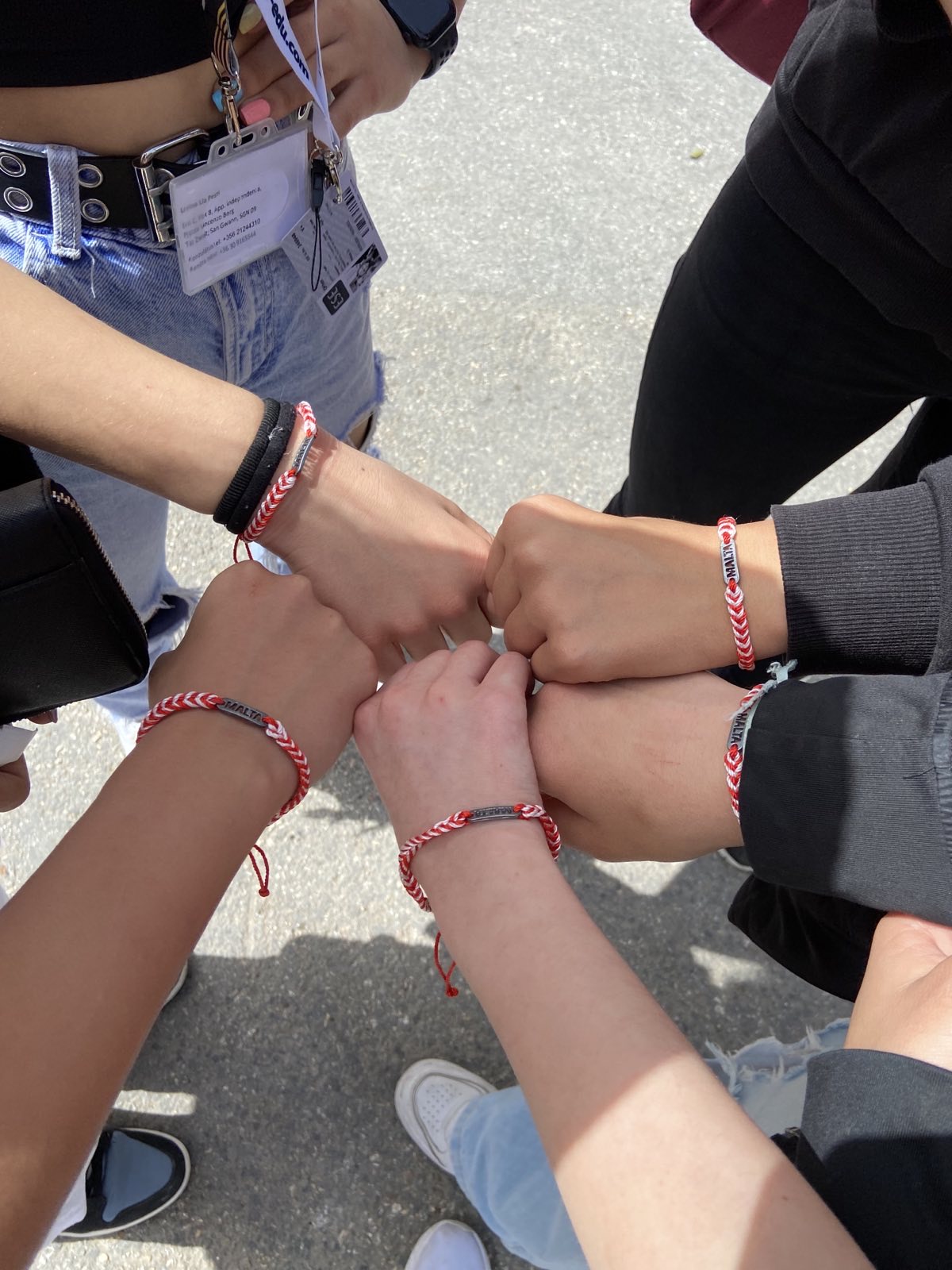
We talked to the teachers involved and a former student of the school about the international experience, the achieved results and the amazing success.
'Fly like a dandelion flower!' - Pitypang Street Primary School won the Award of Excellence with its first project
The Pitypang Street Primary School based the goals of the project on the results of „parent-student-teacher” research. The project aims to focus on the mobility in the new cultural and educational environment, the outstanding learning opportunities for students, as well as the enhancement of self-awareness and professional development of teachers. In addition, an important objective was also to develop a more cohesive community of teachers and students, while improving the digital competencies and foreign language skills.
The "Fly like a dandelion!" project involved a total of twenty-one students and eight teachers. We interviewed four of them, Ágnes Szabó, Kinga Czukor, Margit Laurenczy, Eva Csajtayné Simonyai. And one former student, Ferdinánd Fröhlich, about the international experiences and their impact on the institution, the teaching staff, and the students.
Sustainability and gamification in an international environment
What was the main objective of the project?
Ágnes Szabó,Project coordinator, master teacher: To get to know what it means to be an "Erasmus teacher" and what benefits it can bring. It was our definite objective to improve our language skills.
Margit Laurenczy, Maths and English teacher: During the Erasmus+ project, our main objective was to take part in ICT training courses to make the lessons more enjoyable. It is also crucial to prevent bullying and harassment.
It is important to realise that we are already over 40 and we are struggling with burnout, so it is important to renew ourselves and our knowledge and make education more fun for our students and ourselves.
Mrs. Éva Simonyai Chaytayné,Geography,Arts, English and Literature teacher: The topic of our sessions in Tenerife was how to make teaching and lessons more playful. Almost every exercise included sustainability as a theme. It was very enjoyable, because it was fun, there were unique games, we learned in an international team, and we could practise together. We spent a lot of time outdoors; we could have the sessions either on the beach or in the classroom.
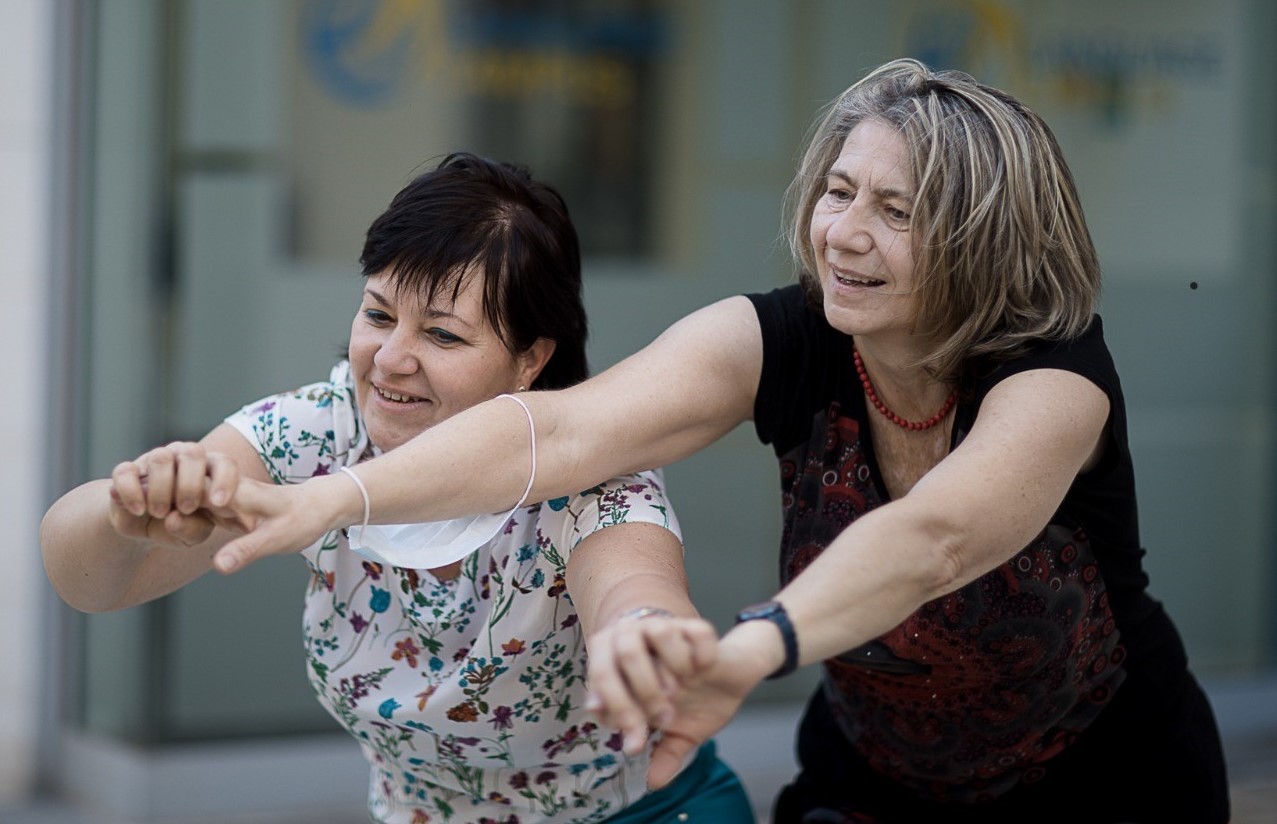
How have you improved professionally and individually during the project?
Margit Laurenczy: The trips abroad have given us new experiences and we got to know new people and colleagues from all over Europe, who also had a positive impact on us, and we experienced that they are facing similar problems like us.
Kinga Czukor, German language teacher: I think I have improved a lot. For example, I had never travelled alone before the project, but thanks to the Erasmus+ programme I was given the chance to do it. I teach German at school, but the course abroad was in English, so I think my English has improved tremendously. I have been in touch with many colleagues since then, which is particularly good for me because it gives me an insight into the school system there and I can incorporate the information into my teaching.
Mrs.Éva Simonyai Chaytayné: One of my subjects is English, but during the courses abroad we learned a lot of new words connected to sustainability and to the games that we learned. My attitude toward nature changed: a Hungarian person does not have a chance to see the ocean every day, so it was a great experience.
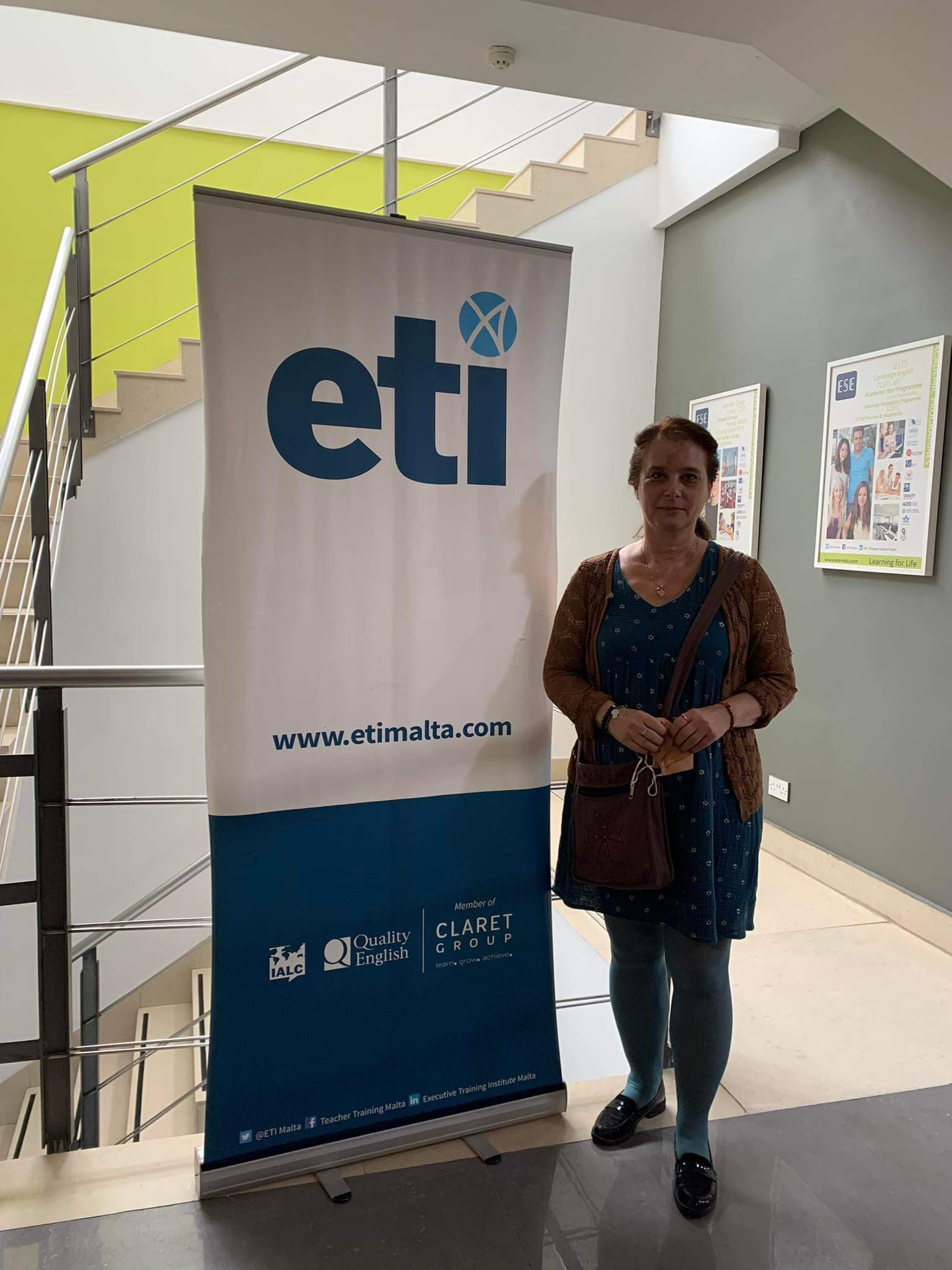
"Through games, a child can learn as much or even more”
What is the added value of mobility abroad to the daily school life?
Mrs. Éva Simonyai Chaytayné: On one hand, learning and the courses happen in an international environment, so we can get to know other colleagues and exchange ideas about the education system of the country in question. I think that anyone who is given the chance to go abroad in this way, and not just on a regular holiday, can definitely broaden their horizon.
On the other hand, I also think that a project like this has a significant impact on students. They learn not only by sitting and being taught in a disciplined and traditional way, but through games, a child can learn as much or even more. When someone is emotionally motivated, the things they learn are much more integrated into their knowledge and their personality.
How has the knowledge gained during the project been integrated into your work and teaching at home?
Czukor Kinga: The project showed us how we could improve foreign language teaching in schools, English and German are now taught in the school in a higher number of lessons. In addition, we have also developed two “smart rooms “with the support of the parents and the foundation, where the students are taught the extra lessons, using different technical equipment. This way they can learn both languages on a higher level.
Erasmus+ mobility from a student perspective
What activities have you been involved in during your Erasmus+ project? What did you do and learn during your time abroad?
Ferdinand Fröhlich: We went to Malta in the eighth grade, and we were involved in environmental protection. For me, it was also really helpful in terms of language learning. I studied German for eight years and it was actually a bit of a challenge, because it was all in English. It was five days of school and two days off. At school we talked and learned a lot about conservation and sustainability, and we often talked about littering and ocean pollution.
However, it wasn't all about studying, we also took part in cultural activities in Valletta, St. Julien's and Nexar, we also went bowling in our free time, and with my friends, we went sightseeing as well.
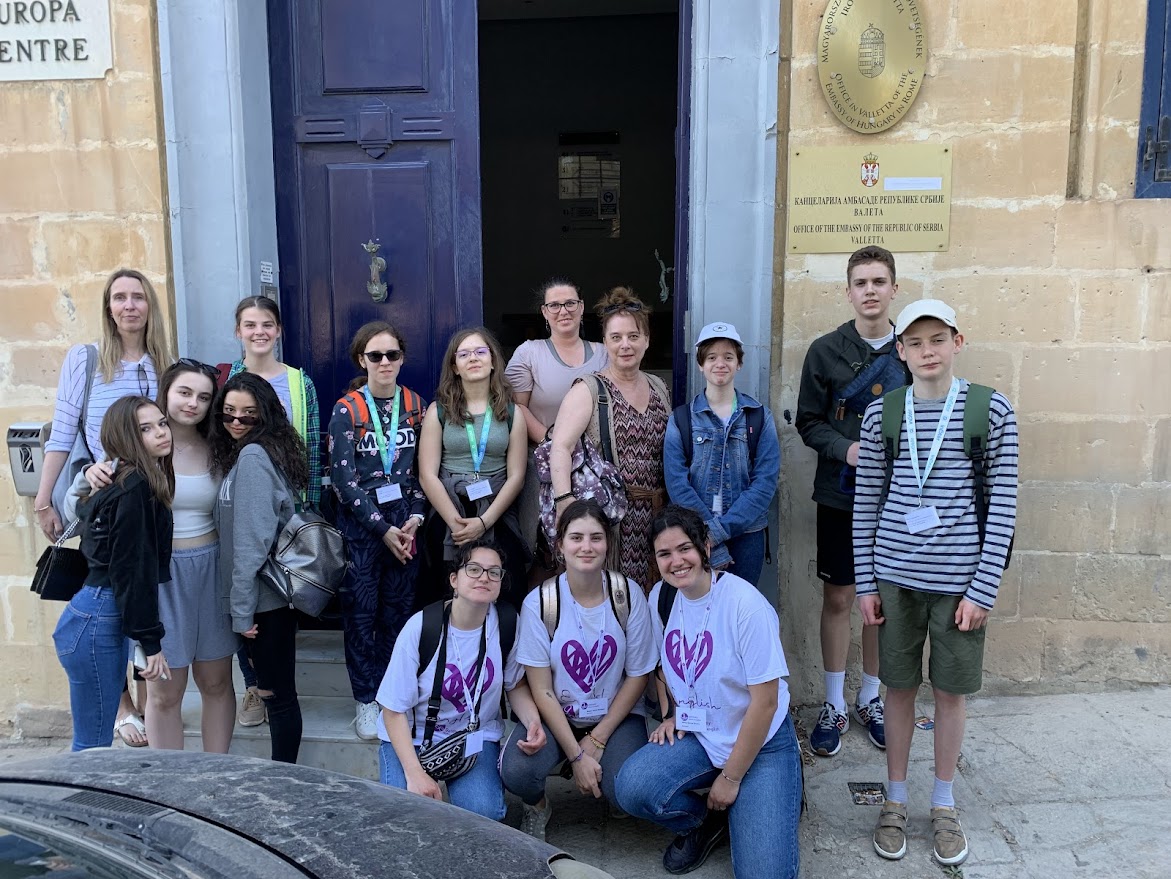
What was the best moment of the project for you?
Ferdinánd Fröhlich: I loved all the programmes. Valletta, the capital, was a beautiful place, and when we went to the beach, we could see the whole island, which was also truly beautiful. I think it is an unforgettable memory for everyone when you visit a new country with your friends, the community is good, and you have no problems.
How do you feel you improved with the Erasmus+ programme?
Ferdinand Fröhlich: It helped me a great deal because it helped me a lot with my language skills. I was accepted into a language class at a high school where I currently have eight English lessons and four German lessons a week. I am grateful to everyone, especially my teachers, for helping me to prepare.
"Listen, we've won an Award of Excellence!"
How did it feel when you found out that the "Fly like a dandelion!" project had won the Erasmus+ Award of Excellence?
Ágnes Szabó: When I received the email notification, my first reaction was that I didn't understand what we had to do with the Award of Excellence, since we hadn't even applied and didn’t even know how to do it. I said: I'll look into it later; I have a class to teach. Then I read with utter dismay that we had won the Award of Excellence, and I ran around the school like a half-wit, telling the others that" Look, we've won an Award of Excellence!". So, it was incredible, we were extremely happy.
What does this award mean to you?
Ágnes Szabó: I personally feel that this award means everything to me that Erasmus+ can mean. Because when you dream and then you make it a success, and you see in the eyes of others that they understand what you wanted to achieve, then it is a great pride.
|
Applicant institution: Budapest 2nd District Potypang Street Primary School Project title: Fly, like a dandelion flower! To learn about the values of the EU, to see its cultural and social similarities, understand its differences and after returning home sharing experiences and inspiring others. Type of call: mobility of students and staff in public education Project coordinator: Ágnes Szabó, master teacher Website: https://www.pitypangiskola.hu/iskola/palyazati-beszamolok/ |
Last modified: 26-08-2024












